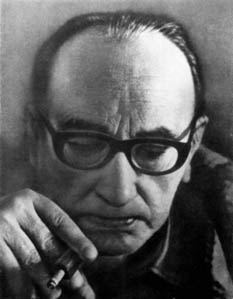 In reading Ronald Barthes I really found interesting his theories on toys. I believe that as he is explaining and describing his theories on toys, he is really describing his view on children; he mentions that: “Frenchman sees the child as another self”(53). He talks about toy being only being “microcosm of the real word”, he mentions that French toys always mean something it is always depicting something of real life for example medicine and the army. It is a way to prepare the child for real life. It is preparing the child for role it should carry out. He mention “There exist, for instance a doll s which urinate…This is meant to prepare the little girl the casualty of house-keeping, to condition her future role as a mother”(53). This reminds me of what my professor in infant psychology class mentioned that “the job of a child is to play”; so even though we as adults see it as just recreation; a child is learning about real life and his role and social behaviour. Does this mean that all girls who played with dolls should become mother? No, I think that as a child we experiment with all kinds of different roles, and this does not limit what we are going to become. He also brings out a very important point which is that children are no longer creators of game but instead just owners or users, so in a way toys are limiting. But children do like to imitate and this is a way of learning. I remember seeing a picture in a psychology book where a 3 year old boy has put a ball under his shirt and have he mentions he wants to have babies when he grows up and you can see mother in the background and she is pregnant. So my question is how much can you blame toys for limiting children creativity and how much is their own predisposition not to create but imitate?
In reading Ronald Barthes I really found interesting his theories on toys. I believe that as he is explaining and describing his theories on toys, he is really describing his view on children; he mentions that: “Frenchman sees the child as another self”(53). He talks about toy being only being “microcosm of the real word”, he mentions that French toys always mean something it is always depicting something of real life for example medicine and the army. It is a way to prepare the child for real life. It is preparing the child for role it should carry out. He mention “There exist, for instance a doll s which urinate…This is meant to prepare the little girl the casualty of house-keeping, to condition her future role as a mother”(53). This reminds me of what my professor in infant psychology class mentioned that “the job of a child is to play”; so even though we as adults see it as just recreation; a child is learning about real life and his role and social behaviour. Does this mean that all girls who played with dolls should become mother? No, I think that as a child we experiment with all kinds of different roles, and this does not limit what we are going to become. He also brings out a very important point which is that children are no longer creators of game but instead just owners or users, so in a way toys are limiting. But children do like to imitate and this is a way of learning. I remember seeing a picture in a psychology book where a 3 year old boy has put a ball under his shirt and have he mentions he wants to have babies when he grows up and you can see mother in the background and she is pregnant. So my question is how much can you blame toys for limiting children creativity and how much is their own predisposition not to create but imitate?
In the end I find it interesting that he compares bourgeois toys with wooden toys. He calls bourgeois toys the product of chemistry graceless material, compared to the wooden toys that have a natural touch and not a cold metal feel. I think the reason to include this is to highlight the way toys have changed and involved and how the newer toys are more impersonal. In conclusion I think the importance of talking about toys is that they influence our view of children and also t children themselves. And in way children toys can depict society’s view on children.


